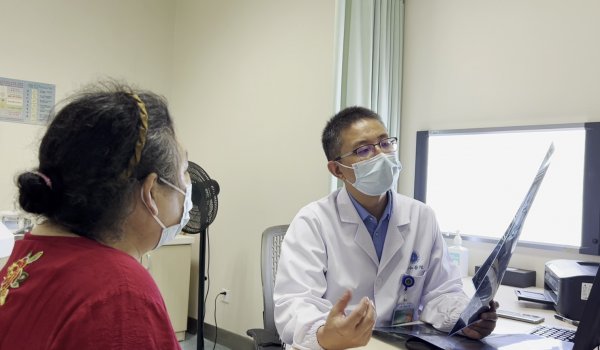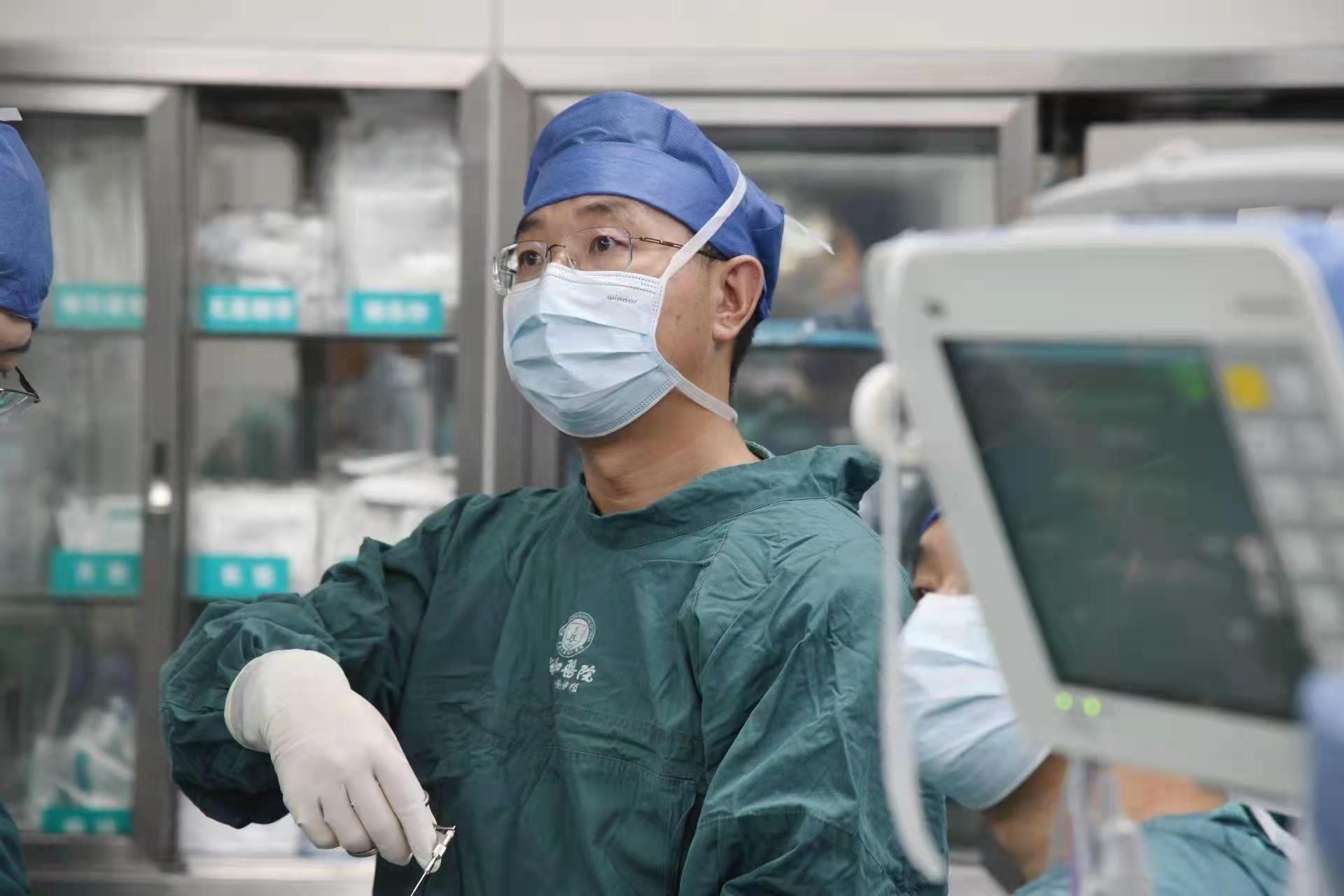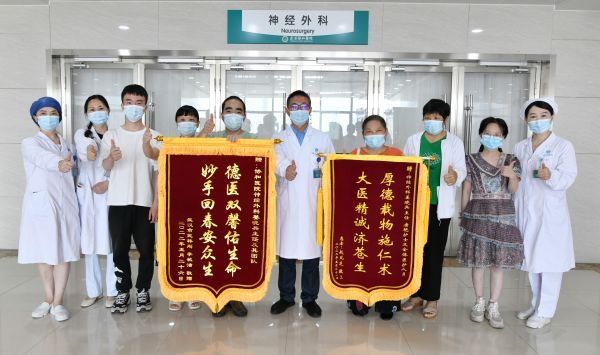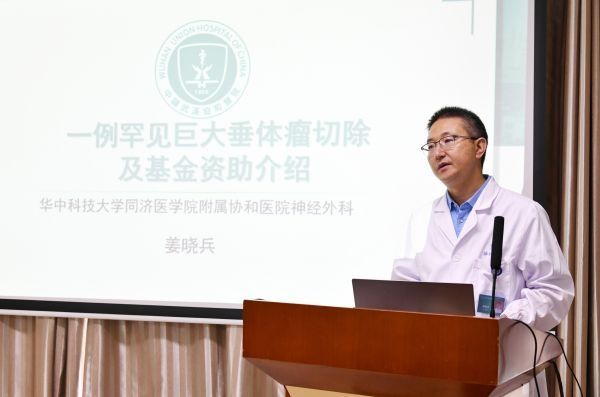Changjiang Daily Wuhan Client June 9 (Correspondent Chen Youwei and Tang Yan) Dizziness, nausea, and blindness in one eye were accidentally found to have a pituitary tumor the size of a duck egg hidden in the skull. On June 8, Ms. Xiaoganlin (pseudonym) returned to the Department of Neurosurgery of the Union Hospital Affiliated to Huazhong University of Science and Technology for re-examination one year after the operation. It is reported that Xiehe Hospital has applied for the “China Pituitary Relief Program” for patients who meet the conditions for reduction and exemption. So far, a total of 31 patients have been funded.

Professor Jiang Xiaobing reviewed the patient.
In May last year, 54-year-old Ms. Lin found that her vision in her left eye was getting blurry and she was almost blind. The local hospital was diagnosed with a pituitary tumor and advised her to go to Union Hospital for treatment.
At the beginning of June last year, Ms. Lin was admitted to the Department of Neurosurgery of Union Hospital. The head MRI showed “pituitary tumor and bleeding”. The tumor was about 4.9×5.3×6.2cm, such as the size of a duck egg. For the narrow intracranial space, this tumor is like a ticking time bomb, which can be life-threatening at any time.
The huge pituitary tumor is tightly adhered to the surrounding tissues, compressing the optic nerve. If the craniotomy is performed directly, the trauma will be great, the operation difficulty will increase, and the patient’s recovery will be slow, but endoscopic surgery alone cannot The tumor was removed cleanly. After detailed analysis and planning by the disciplinary team, Director Jiang Xiaobing of the Neurosurgery Department decided to first remove part of the tumor through nasal endoscopy to relieve compression symptoms and relieve brain herniation. Later, the residual tumor was removed by craniotomy and gamma knife. This can not only reduce the harm to the patient, reduce the risk of surgery as much as possible, but also remove the tumor to the maximum extent and save the patient’s life.

Professor Jiang Xiaobing performed pituitary tumor surgery for the patient.
Ms. Lin’s family is in financial difficulties. Her husband suffers from Parkinson’s disease. He needs to take medicine all the year round and has no ability to work. So, Union Neurosurgery applied for the “China Pituitary Relief Project” for her. In June last year, Ms. Lin completed two operations, with a total reduction of 20,000 yuan.
Similar to Ms. Lin, the remaining 3 pituitary adenoma patients who were assisted by the project in this period also had some surgical fees reduced.

The group of recovered patients presented a pennant to Professor Jiang Xiaobing’s team.
Jiang Xiaobing introduced that pituitary adenoma is a benign intracranial endocrine tumor, accounting for 10% to 15% of intracranial tumors. Functional pituitary adenoma not only affects endocrine, but also easily causes increased intracranial pressure, headache, nausea and vomiting, and endocrine dysfunction, which seriously affects the quality of life and life safety of patients.

Director Jiang Xiaobing explained the pituitary tumor.
In recent years, the Department of Neurosurgery of Union Hospital and Shanghai Soong Ching Ling Foundation have joined the “China Pituitary Relief Project”, becoming the only funding center in the central and southern regions. The project began to accept poor pituitary glands in April last year. Funding applications for cancer patients for a period of three years. Pituitary tumor patients whose per capita monthly income of family members is lower than the per capita disposable income of residents in the province or autonomous region where the hospital is located in the previous year published by the National Bureau of Statistics can apply for this subsidy in Union Hospital. After approval, the subsidy amount is 5,000 ~20,000 yuan, currently a total of 31 patients with pituitary tumors are funded.
It is understood that the Department of Neurosurgery of Union Medical College Hospital currently offers craniocerebral tumors, skull base endoscopy, neurosurgery, spinal cord, cerebrovascular disease, stereotaxic gamma knife, craniocerebral trauma, functional neuropsychiatry, The nine major subspecialties of pediatric neurosurgery are one of the few neurosurgeries with the most complete subspecialties in the country, and more than 500 transnasal endoscopic surgeries for pituitary tumors are carried out every year.
[Editor: Yu Lina]
[Source: Changjiang Daily – Changjiang Net]